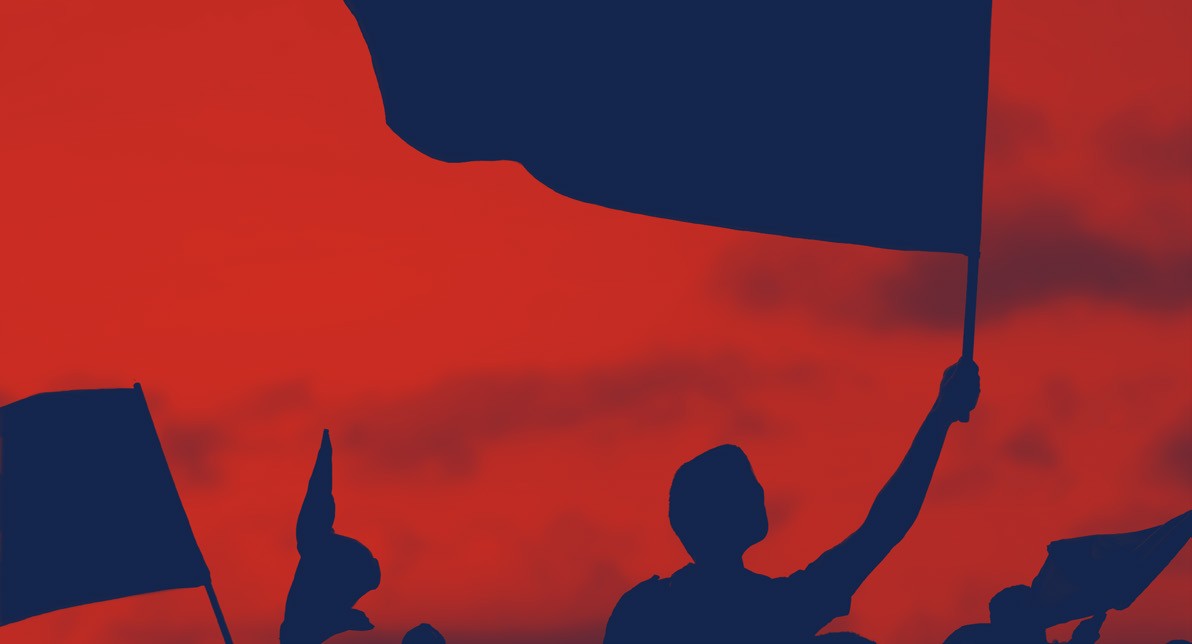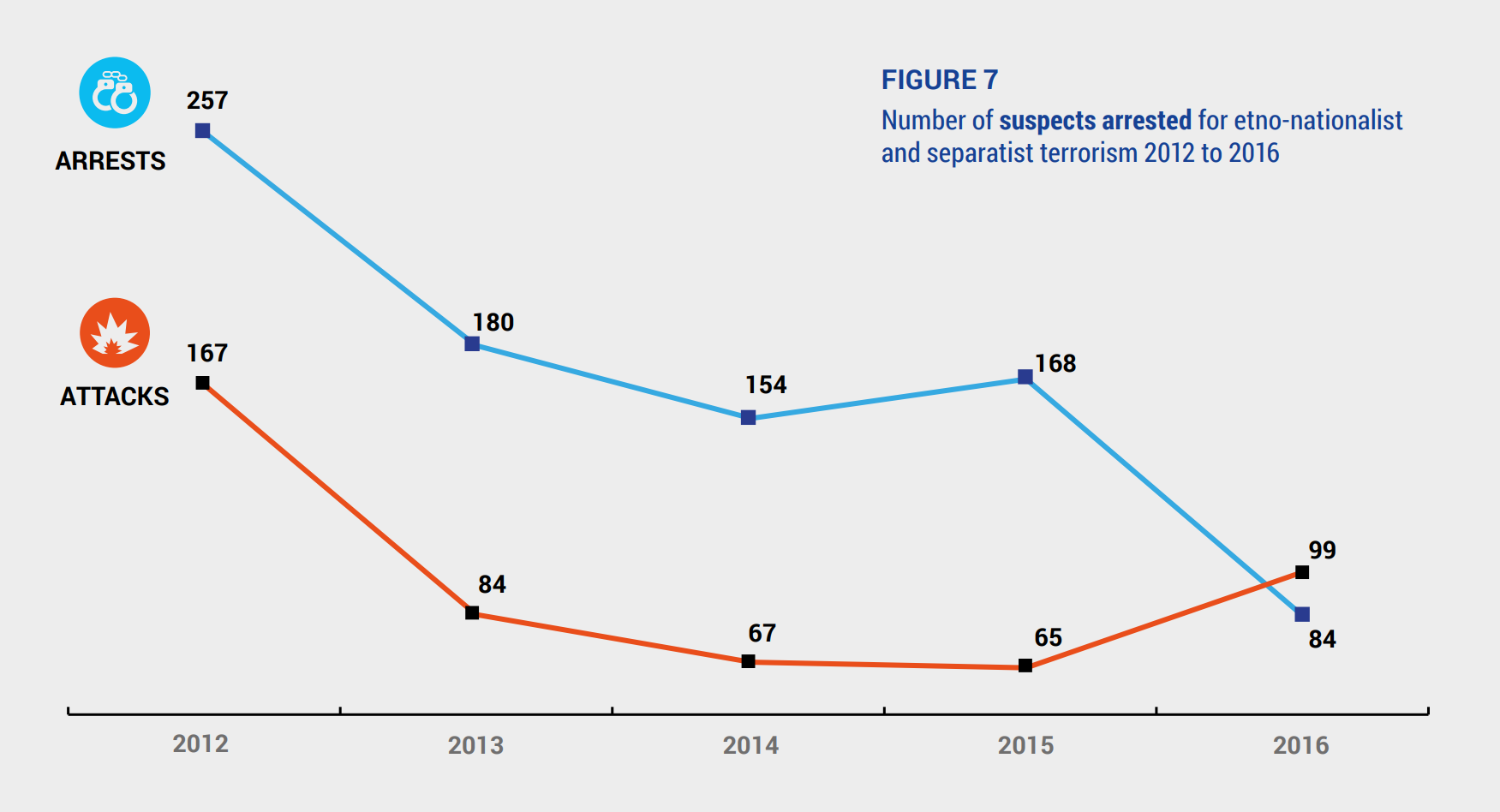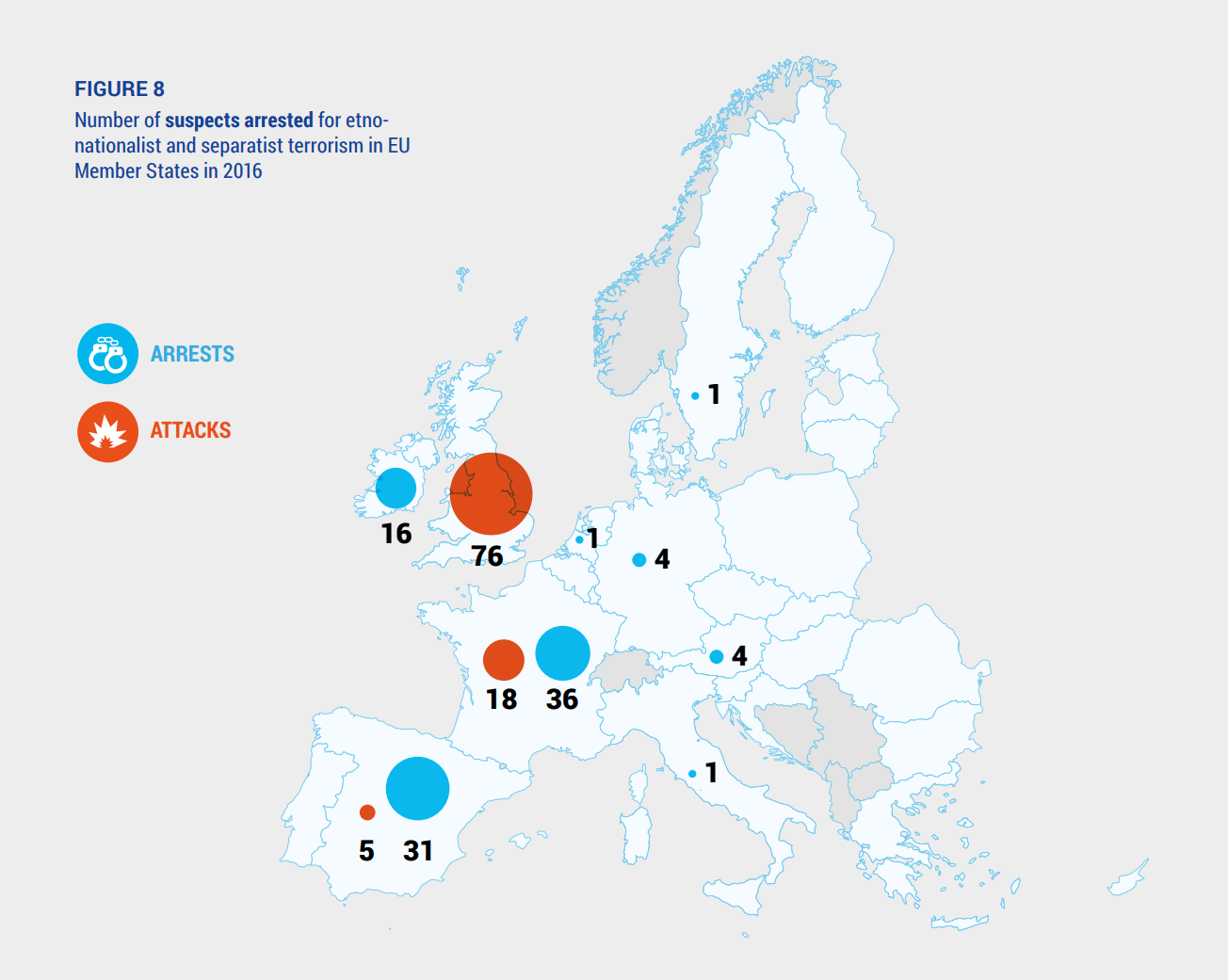A number of incidents targeting Turkish institutions, cultural premises and properties occurred in several EU Member States.
Five IED attacks against Turkish government buildings and cultural associations were reported by France. Belgium also reported incidents between Turkish and Kurdish groups involving the use of arson and explosives.
Germany reported various incidents. A significant number occurred in the context of demonstrations for or against the PKK. Turkish properties and institutions were damaged by incendiary devices. In one arson incident, the damage amounted to at least EUR 2 million. In August in Nuremberg, three participants were injured during a fight, in which at least one was stabbed.
Belgium, France, Germany*, Italy, Romania and Switzerland reported that the PKK continued its fundraising, propaganda and recruitment activities. In France it operated a legal front, which includes the Conseil Kurde de France (CDK-F) and the Centre d’information du Kurdistan (CIK); and a clandestine branch aimed at collecting funds, using violence in some cases. In France alone, the fundraising campaign is believed to have yielded EUR 5.3 million. Italy reported recruitment among Kurdish migrants to join Kurdish militia in conflict zones or to become PKK activists in Europe.
In addition, Switzerland stated that the PKK were maybe running a number of ideological training camps for its youth in remote pre-Alpine areas during the second half of 2016.


 foiled, failed and completed attacks carried out labeled as ethno-nationalist and seperatist terrorism.
foiled, failed and completed attacks carried out labeled as ethno-nationalist and seperatist terrorism.

